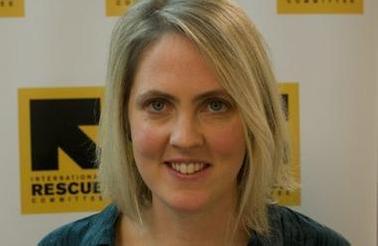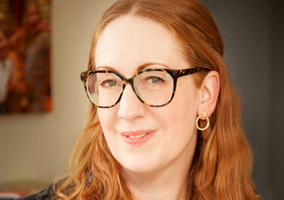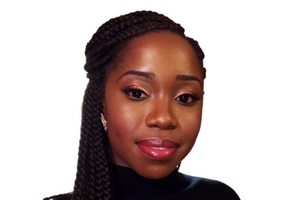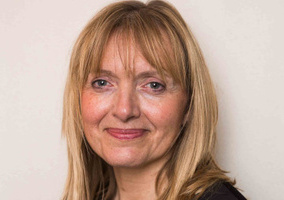It has been a busy couple of years for Laura Kyrke-Smith, executive director of International Rescue Committee (IRC) UK.
Her promotion in January 2020, after four years as director of communications, coincided with the beginning of the Covid-19 pandemic in the UK while IRC continued to respond to the world’s toughest humanitarian crises in countries such as Syria, Libya and Yemen.
More recently, IRC UK has been campaigning against the government’s illegal migration bill – as it describes it – which aims to stop small migrant boats crossing the Channel.
Kyrke-Smith says that campaigning is a core part of the charity’s mission.
“For the clients we serve, refugees and displaced people, we feel a strong responsibility to say what it is that we hear from them about the needs and the challenges they face and the solutions they need in place,” she says.
“Through advocating for policy change, we can make a difference to their lives.”
First programme in the UK
IRC was founded in 1933 at the call of Albert Einstein to assist Germans suffering under Hitler and now operates in more than 40 crisis-affected countries. IRC UK was established as an independent charity in 1997, becoming the European headquarters of IRC.
In 2021, IRC launched its first programme in the UK to provide integration support to 200 resettled refugees in the south of England and help them rebuild their lives. That year also saw IRC UK become the 15th member of the Disasters Emergency Committee (DEC).
DEC’s Afghanistan, Ukraine and Pakistan appeals resulted in more than £17m allocated to IRC’s humanitarian responses last year.
Kyrke-Smith, who joined DEC’s board when her charity became a member, says that joining the group has enabled IRC UK to be a more impactful organisation. She says that IRC also aims to respond to disasters quickly, giving the example of it transferring $500,000 to partners in northwest Syria within 36 hours of its campaign launching.
Government funding cuts
IRC UK joined DEC at the same time as its funding from central government was cut.
In 2021, UK aid spending declined by 21% compared with the previous year, reflecting the government’s decision to reduce it from 0.7% to 0.5% of Gross National Income.
The Foreign, Commonwealth and Development Office (FCDO) has long funded IRC UK to deliver programmes. However, FCDO provided £29m in funding to the charity last year, just over half of the £57m given in 2021.
One of the charity’s FCDO-funded programmes is Saving Lives, which aims to build Sierra Leone’s healthcare system to support pregnant women, those giving birth and kids under five.
The five-year programme began in 2008 and has seen IRC UK work with 14 district hospitals and nearly 100 community health centres in Sierra Leone to ensure they have the right infrastructure, blood supplies or sufficient electricity supplies to perform surgical operations.
Kyrke-Smith says: “When we started that project across those hospitals, on any given day only 33% of them would have spare blood supplies, which when one of the leading causes of death for women in childbirth is haemorrhaging is crucial. Thanks to that project, now 84% of those hospitals have sufficient blood supplies on any given day.”
But over the past few months, IRC UK has had to navigate a 50% cut to that programme because of FCDO funding reduction. Kyrke-Smith fears that the progress achieved there “will start to slide backwards again”.
She says that the government should stop its “knee-jerk” reaction to disasters, change its funding model to think in the long-term for international development aid and help groups rebuild social and economic systems.
Despite the “tricky” funding environment, Kyrke-Smith says the charity is financially secure.
“Given the diversity of our income sources overall, we hope to be able to keep balancing [reductions in FCDO funding] with funding from other sources. The public are facing tough choices about where to spend increasingly limited funding. But I feel that we’re secure enough.
“The challenge for us is that the needs we’re trying to meet across the world just keep growing. We need more funding to meet them. The answers come from lots of different places. Sometimes that’s funding, sometimes that’s diplomacy and sometimes that’s partnership with the private sector. So, we need to think in a rounded way about the different partners that can help us achieve the change we want to see for our clients.”
Preventing abuse
The IRC was named alongside several other charities in 2018 reports of historical allegations of aid workers who were “alleged to be in sexually exploitative relationships with refugee children”.
Following the International Safeguarding Summit in London in 2018, IRC UK and seven charities including Save the Children UK and Oxfam GB set out “concrete actions” to do better.
These included listening to survivors, communities and staff, preventing abuse from taking place, responding rapidly to all concerns and learning from past mistakes and keep getting better.
Kyrke-Smith comments: “To me, the focus around that summit was very much on the ‘respond’ part. If an incident occurs, making sure that survivors or others that may witness it feel empowered to speak up and trust that it will be dealt with effectively.
“We have made a lot of progress there, partly through resourcing and building up our investigations unit and internal communications. We’ve had this raise concerns campaign that’s gone out to staff across the world in 14 different languages, which is to encourage people to report if they see something that feels wrong.”
The charity also has a code of conduct called the IRC Way, centred on four values of integrity, accountability, service and equality, which involves mandatory training that all staff do once a year. This year included dedicated sessions on safeguarding, covering the expectations the charity has of its staff and case studies allowing them to understand what they mean in practice.
“That training component is a really important part of prevention,” she says. “We’ve put a heavy emphasis on that and we’re seeing great feedback from staff. We’re also seeing the benefit of this campaign to encourage people to raise concerns. There’s more coming to our investigations unit for them to consider.”
Addressing ‘inherent biases and power imbalances’
IRC UK previously admitted that there were “inherent biases and power imbalances” in its organisation, “which in turn reflect long-standing historical and colonial injustices”.
“We also recognise the need to confront and stop the harmful practices that result from racism and discrimination at the IRC,” it added.
Last year, the charity published an updated gender, diversity, equality and inclusion (GEDI) strategy setting out how it can be a more diverse, equitable and inclusive place to work by 2024.
As part of this, it committed to implementing 75 targeted actions such as offering regular staff-wide unconscious bias training and driving up the number of Black, Indigenous and People of Colour (BIPOC) staff recruited, especially at senior levels.
Kyrke-Smith says: “We’re just over six months into that strategy and 28 of those actions are completed. We’ve made some important headway like committing to a DEI review of all of our EHR policies and that’s happened. We’ve had expert advice from the Employers Network for Equality & Inclusion on those policies and we now have a programme in place to make the amendments that we think we need to make.
“There are some great changes we’re starting to make but there’s lots more in there that’s still in progress. There are 18 actions that we haven’t started yet, not because we’re not committed to them but because they were scheduled for delivery a bit later in that two-year strategy. And there’s a group in the middle that is underway.”
Kyrke-Smith says that the board has also changed “significantly” and developed its own updated GEDI action plan. When she became IRC UK’s executive director, there were just a handful of women on the board and it had not thought much about diversity beyond that, she says. Now, the 13-person board includes six women and seven men, with four trustees identifying as people of colour and three with lived experience of conflict and displacement.
“It’s fantastic being able to work with a diverse board that thinks differently from the previous board. Credit to our chair Titilola Banjoko for driving that change forward,” Kyrke-Smith says.
On recognising biases and power imbalances, she admits that IRC received feedback from its staff around the world who shared experiences of harmful practices.
“There’s a staff group here called the global majority network that has given me a lot of inspiration in terms of the work we need to do as an organisation. I had some great conversations with them coming into the role. We wanted to start on a journey of change, which was one of my priorities. That conversation certainly intensified after the murder of George Floyd and we learned a lot more from our staff.
“Ultimately, it’s our staff and clients who are the judges of whether our DEI work is having the impact it needs to have. Staff feedback really matters to me and until I’m hearing from staff that they’re experiencing IRC as a diverse, inclusive and equitable place to work, then we have to keep pushing for change.”
Related articles












